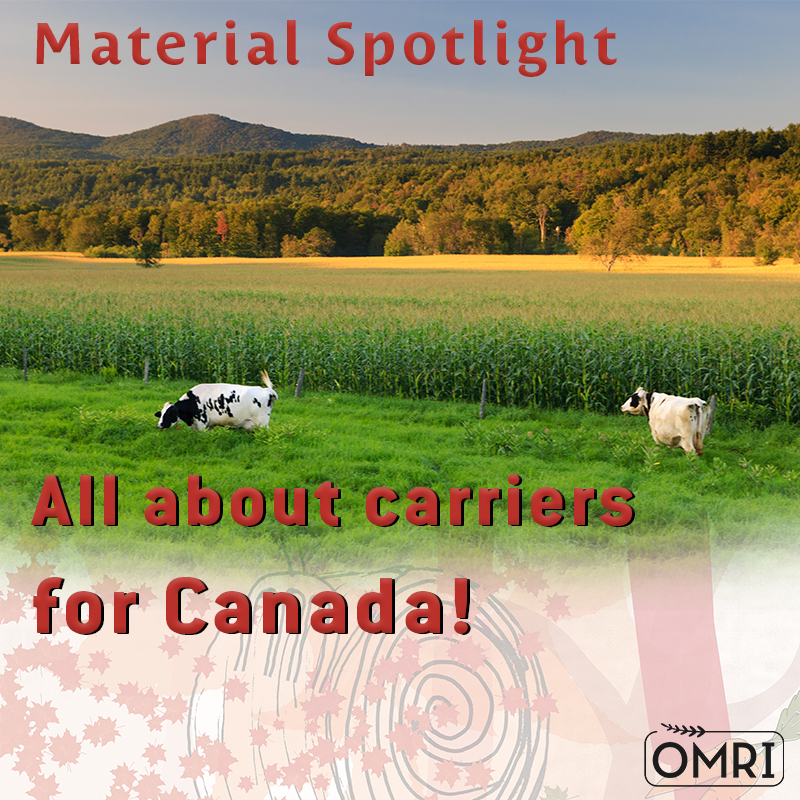Livestock Probiotics
 Do carriers in probiotics that are fed to livestock need to be certified organic under the Canadian regulations?
Do carriers in probiotics that are fed to livestock need to be certified organic under the Canadian regulations?
By Sarah Peters
Carriers are substances, both agricultural (e.g., wheat bran) and nonagricultural (e.g., diatomaceous earth), used to deliver specific livestock feed materials to animals. By design, carriers are present in the input material provided to the animal. If agricultural, are carriers required to be certified organic?
The Standards Interpretation Committee (SIC) #252 addresses the use of non-organic agricultural substances used as growing media to manufacture probiotics for use in livestock feed. This response to a public question indicates that any remaining substrate in a livestock feed, feed additive or supplement must be evaluated as an individual ingredient for compliance with the requirements of 32.311 5.1.2, as follows:
If the substrate or growth media of a probiotic does not remain in the ingredient, it must be non-genetically engineered, if commercially available. Substrates or growth media that remain in the ingredient must appear in Permitted Substances List (PSL) tables 5.2 (feed) or 5.3 (health care).
If both the ingredient and growth media substrate are identified in PSL table 5.2 (feed) or 5.3 (health care), they are allowed for use, provided that each substance complies with listing annotation(s). If an agricultural substance is present and not identified in the PSL tables, then the substance must be certified organic.
The SIC response provides the example of whey protein used as growth media or substrate. Whey is not permitted in probiotic products intended for livestock feed, unless the whey is organic, because whey is not listed in PSL Table 5.2. Probiotic products without whey are permitted without a commercial availability search, because at present no milk is being produced from genetically engineered animals.
One can compare this to colostrum whey used in a probiotic as a livestock health care product or production aid; PSL Table 5.3 specifically identifies colostrum whey. In this instance, because colostrum whey is specifically identified, it would be allowed for use in compliant probiotics regardless of its organic status. In this way, carriers must also be in PSL table 5.2 or 5.3 and comply with listing annotation(s). If agricultural and not identified in the PSL Tables, then the substance must be certified organic.
This article was originally published in the Summer 2019 edition of the OMRI Materials Review newsletter, and was revised in September 2021 by Technical Director Doug Currier.








